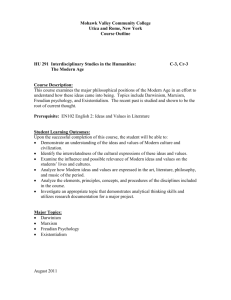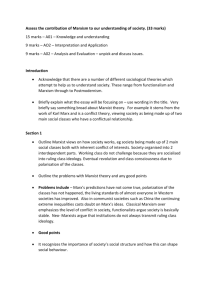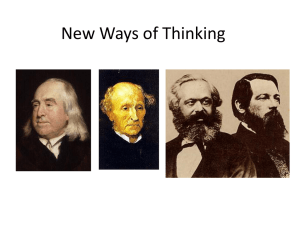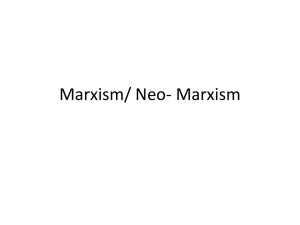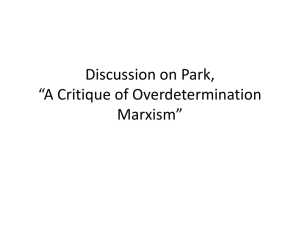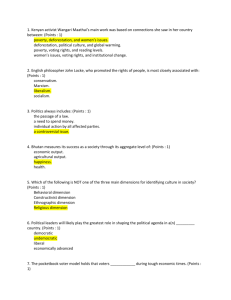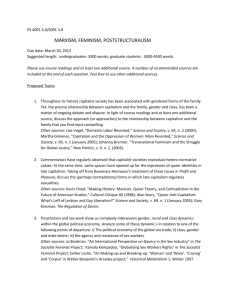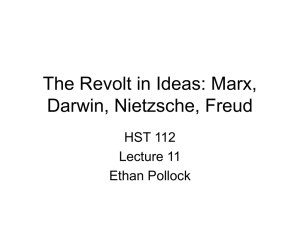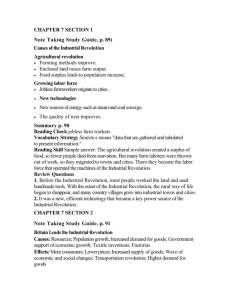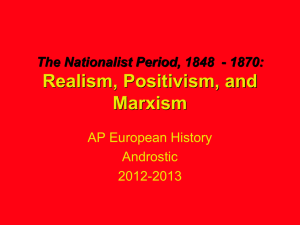Lecture One A Brief Introduction to the tradition of “Western Marxism
advertisement
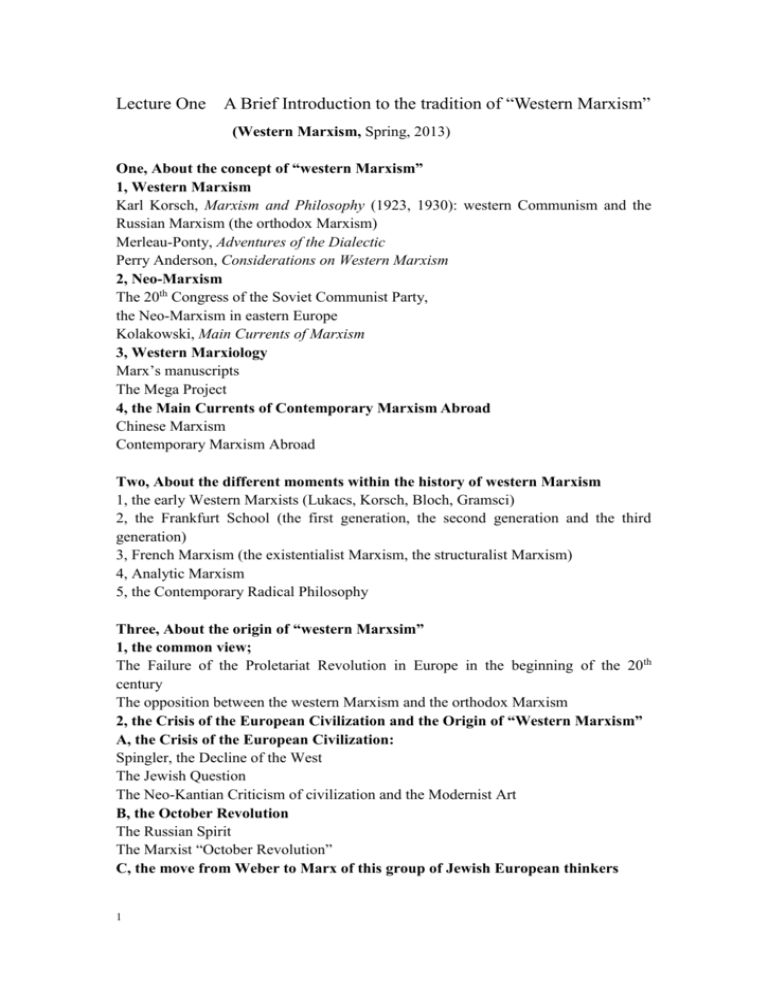
Lecture One A Brief Introduction to the tradition of “Western Marxism” (Western Marxism, Spring, 2013) One, About the concept of “western Marxism” 1, Western Marxism Karl Korsch, Marxism and Philosophy (1923, 1930): western Communism and the Russian Marxism (the orthodox Marxism) Merleau-Ponty, Adventures of the Dialectic Perry Anderson, Considerations on Western Marxism 2, Neo-Marxism The 20th Congress of the Soviet Communist Party, the Neo-Marxism in eastern Europe Kolakowski, Main Currents of Marxism 3, Western Marxiology Marx’s manuscripts The Mega Project 4, the Main Currents of Contemporary Marxism Abroad Chinese Marxism Contemporary Marxism Abroad Two, About the different moments within the history of western Marxism 1, the early Western Marxists (Lukacs, Korsch, Bloch, Gramsci) 2, the Frankfurt School (the first generation, the second generation and the third generation) 3, French Marxism (the existentialist Marxism, the structuralist Marxism) 4, Analytic Marxism 5, the Contemporary Radical Philosophy Three, About the origin of “western Marxsim” 1, the common view; The Failure of the Proletariat Revolution in Europe in the beginning of the 20th century The opposition between the western Marxism and the orthodox Marxism 2, the Crisis of the European Civilization and the Origin of “Western Marxism” A, the Crisis of the European Civilization: Spingler, the Decline of the West The Jewish Question The Neo-Kantian Criticism of civilization and the Modernist Art B, the October Revolution The Russian Spirit The Marxist “October Revolution” C, the move from Weber to Marx of this group of Jewish European thinkers 1 Four, Western Marxism and German Idealism 1, the move from Neo-Kantianism to Hegelianism (Bloch, Lukacs) Neo-Kantianism: the separation between the world of fact and the world of value George Simmel: the separation between culture and civilization Max Weber: the separation between the world of rationalization and the ethics of responsibility (for the political leaders) Modernist Art: “Art is for the sake of Art” Hegelianism: Substance is Subject Only one world To make the life given to us intelligible and meaningful 2, the Hegelian Dialectic and the Marxist Revolution The Hegelian Dialectic: the coincidence of history and genesis Revolution: the making of history Thinking: participate in the genesis of history 3, “the Adventures of Dialectic” The dialectic of subject and object The dialectic of theory and praxis The dialectic of intellectuals and mass From the dialectic of totality to the negative dialectic From the dialectical reason (Sartre) to the scientific anti-humanism … Five, Western Marxism and Religion 1, Marx and Engles’ Criticism of religion A, from the young Hegelian criticism of religion to the decisive positive transcendence of religion the limitations of the young Hegelian criticism of religion the origin and the dual functions of religion(justification and protest) the decisive positive transcendence of religion (the abolishment of the state and the revolution of the civil society) B, from the criticism of abstract religion to the criticism of commodity fetishism Judaism (the secular version: the worship of Money) is the spirit of the civil society The Commodity Fetishism in the Capitalist Society C, the alliance between religion and Marxism Engles: The early Christianity and communism (the history of the early Chrisitianity) The German Peasants’ War and the Christian Religion (on the German Peasants War) 2, the importance of religion for this group of Jewish European thinkers A, the Jewish Question B, Max Weber: the Protestant Ethic and the Spirit of Capitalism 2 3, Marxism and Religion A, from Weber’s criticism of rationalization to the Revival of Marx’s criticism of fetishism B, from Jewish Messianism to the dialectical thinking within enlightenment Six: The Inherent Tension Within the Tradition of “Western Marxism” 1, the tension within the project of “rational critique of rationality”: totality and negativity 2, the tension within the project of humanism: disenchantment and religion 3, the tension with the possibility of revolution: revolutionary and conservative 3
